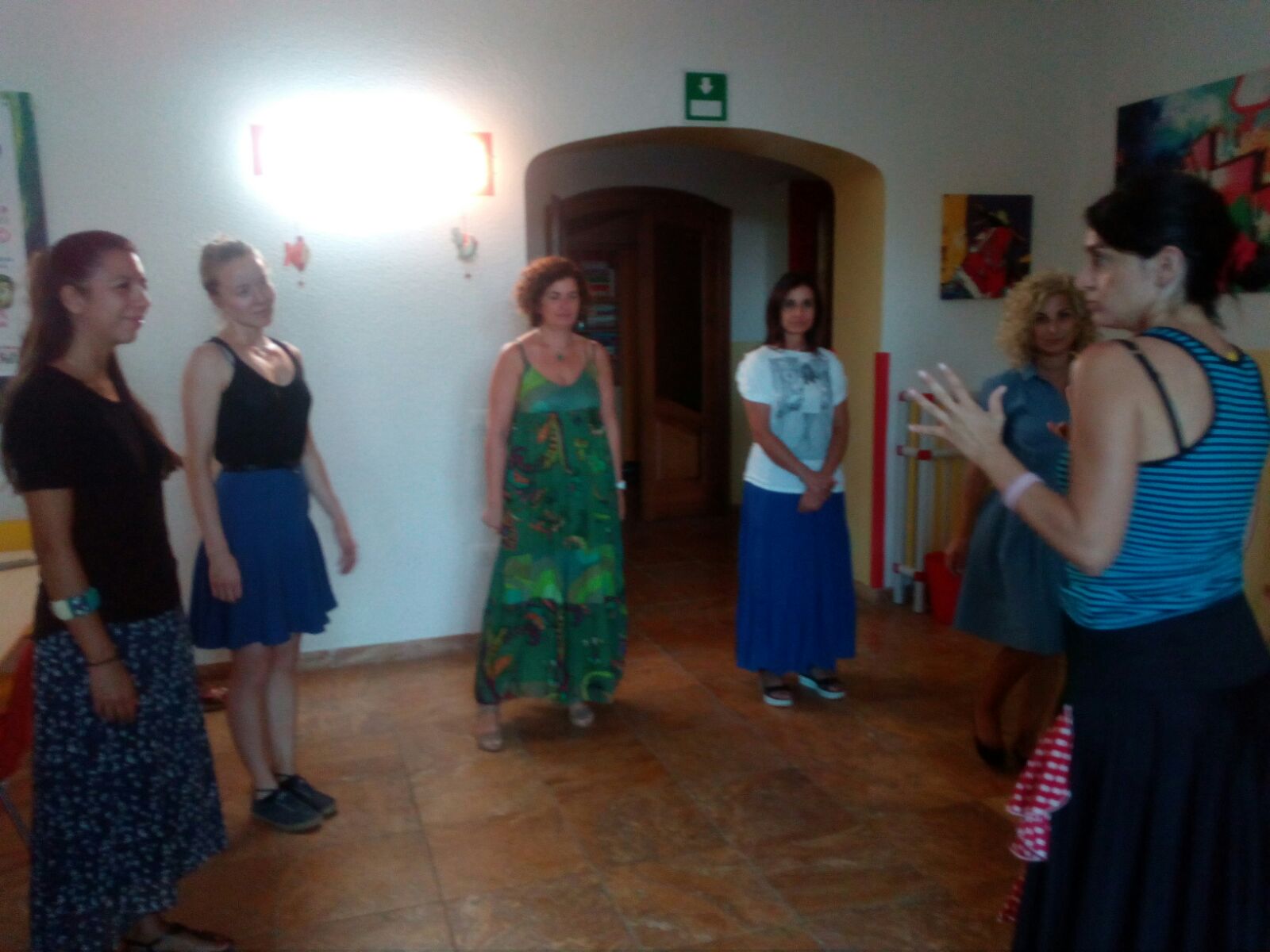NUEVOS RETOS EN LA LUCHA CONTRA LA VIOLENCIA DE GENERO: ESTRATEGIAS Y METODOLOGIAS INNOVADORAS EN LA FORMACION
2016-1-ES01-KA104-024626 Supported by Erasmus+
Sierra Elvira, Atarfe. Granada – Latiano, Brindisi (IT)
July 1, 2016 – June 30, 2017

The idea of this project comes from a reflection on the latest study by the European Agency for Fundamental Rights which is based on interviews with 420.00 women in 28 EU Members between 18 and 74 years. The results are alarming. In 2015 European Parliamento adopted new strategies of equality between women and men and the Commission on Women’s Rights and Gender Equality reiterates the call to designate 2016 as the European Year for combating violence against women and girls, taking advantage to promote effective and ambitious strategies in order to strongly reduce gender violence. 2015 datas speak of a growing phenomenon that needs new strategies and approaches from one side in management of cases of abuse, in which it is detected that the the trend is be late in denunce and prevention. The majority of cases of abuse that public administrations send to our centre shows how many abused women tend to return to the abuser. In an emergency we have to be very firm in our job and work on their self-esteem and their autonomy.The primary objective of this project is the confrontation on how the Fundacion Escuela de Solidaridad and Ass. Ethra are working on gender abuse, their own procedures and methodologies, communicative, expressive and relational practices. In particular it is proposed to deepen the following three levels of intervention: emergency management and listening center, follow up of the first year focusing on the promotion of personal growth, pursuit of psycho-physical well-being and promotion of autonomy and at least, prevention and recognition of violence of genre.That confrontation emerge mutual acquisition of innovative practice, knowledge and transferable skills in areas ofeducation, training, intervention, communication and dissemination where the two partners have different backgrounds, or intergenerational, interpersonal and intercultural, and in relation to the dynamics involving people with specific problems but also, social workers and university students They want to learn new intervention practices. Both the organizations integrate new methodologies in its pedagogic framework through joint studies.In addition to workers who are in charge of pedagogy, education, monitoring of emergencies and the development of the autonomy of abused women, in foster case, there are different operators of teaching: teachers, assistants, etc. … related to various disciplines in both bodies participating in the project (management, project design and promotion).The selection of participants in the project will take place between these figures depending on their profile, interest and availability at the time that the activities will be organized, and in terms of their roles.The project is carried out through the following activities and number of participants:STAFF TRAINING (Flow 1): Course on emergency management, first aid, first 3 months follow-up and counseling center for battered women physical and mental condition (FES sends 8 professional).TEACHING ASSIGNMENT (Flow 1): emergency management, personal growth and development process empower battered women situation (10 classes Ethra professionals)TEACHING ASSIGNMENT (Flow 2): Course on Prevention and recognition of gender violence and listening center (classes of 10 professionals from Ethra).STAFF TRAINING (Flow 2): Course on staff development process and empower battered women Growth (FES sends 8 professional).Job Shadowing with 3 people on three different topics: emergency management and listening center, autonomy and personal growth and prevention of gender violence.Participants will use the new knowledges about education, pedagogy, design and project management in the workplace according to a plan to be drawn up partly in Italy partly in Spain. Both sending organization and host will experience significant impacts resulting from the proposed activities. First, it will be implemented and will strengthen the relationship between the two partners also will receive each other as privileged partners in European context. Two organizations can implement short and long term educational and pedagogicals new proposals thanks to the contributions received during the course activities and experience new methods of evaluation of new methodologies applied.